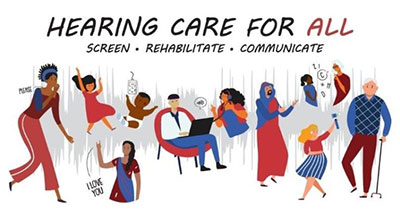WHO examines global burden of hearing loss
March / April 2021 | Volume 20 Number 2

Images courtesy of WHO
Nearly 2.5 billion people worldwide - one in four - will be living with some degree of hearing loss by 2050, warns the
WHO’s first World Report on Hearing. At least 700 million of these people will require access to ear and hearing care and other rehabilitation services unless action is taken.
“Our ability to hear is precious. Untreated hearing loss can have a devastating impact on people’s ability to communicate, to study and to earn a living. It can also impact on people’s mental health and their ability to sustain relationships,“ said Dr. Tedros Adhanom Ghebreyesus, WHO Director-General.
Lack of accurate information and stigmatizing attitudes to ear diseases and hearing loss often limit people from accessing care for these conditions, according to the study. Even among health care providers, there’s often a shortage of knowledge about prevention, early identification and management of hearing loss and ear diseases, hampering their ability to provide the care required. The report is being widely disseminated to promote implementation of its recommendations by WHO member states. WHO has said it will provide technical support and, where required, develop evidence-based guidance to facilitate country responses.
The
National Institute on Deafness and Other Communication Disorders (NIDCD) joined the CDC and other stakeholders in the global hearing health and research communities to mark the launch of the report.
More Information
To view Adobe PDF files,
download current, free accessible plug-ins from Adobe's website.
Related Global Health Research Topics